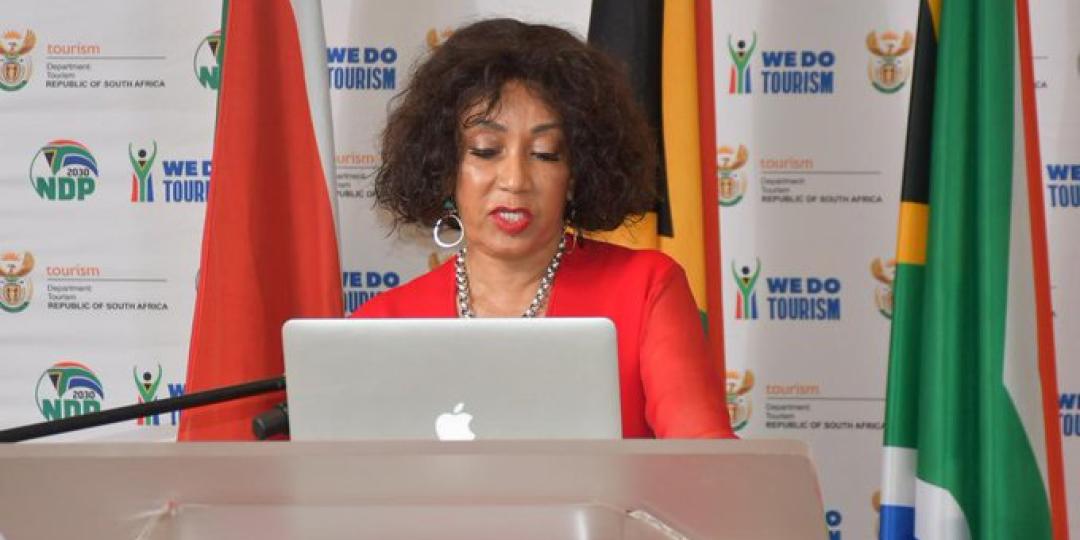Despite ongoing headwinds to global tourism growth – including a rise in COVID-19 infections, ongoing travel restrictions and the war in Ukraine – hope for recovery is stronger than ever.
This was the message from the Minister of Tourism, Lindiwe Sisulu, at the conclusion of the Tourism Budget Vote in the National Assembly yesterday (Thursday, May 19).
She said: “Confidence in our country as a tourism destination is increasing as various partners and airlines resume operations in South Africa. Throughout this period, South Africans have shown their resilience and solid commitment to the tourism sector and indeed supported domestic tourism through these very trying times.”
Sisulu added that international tourist arrivals to South Africa were up 4% in 2021. “The outlook for 2022 is better prospects, although opinion is split on whether rebound in will take place in 2022 or 2023. The UN World Trade Organisation’s (UNWTO) expectation is that international arrivals will return to 2019 levels only in 2024 or later.”
Sisulu further pointed to recent Airports Company South Africa (Acsa) figures showing that air travel to and from South Africa has reached its highest levels of activity since Covid-19 pandemic – almost 2.3 million through OR Tambo, Cape Town, and Durban in March – up 70% from previous year.
“Recovery is being bolstered by international arrivals. Cape Town International Airport's total passenger activity had increased to 66% of levels last seen in the first quarter of 2019. January and February this year saw strong growth in arrivals from UK, Netherlands, Australia, Germany, Switzerland - 549% up in 2022 vs 2021 from our top 10 source markets (Stats SA),” she said.
The Minister pointed out that international airlines could not keep up with the demand for travel to and from South Africa, resulting in stubbornly high airfares made even worse by soaring fuel prices.
“We presented this budget vote on the back of numerous seismic social, economic and humanitarian crises. But we have to note that our people have responded with hope, strength, and the determination to prevail. It is these demonstrable qualities we celebrate with this budget vote, and which we will give support and real meaning."
The challenges
In her Budget Vote debate conclusion Sisulu outlined some of the challenges faced by industry in South Africa.
“First was the Covid-19 pandemic, the impact was immediate and restrictions on movement devastated the global tourism sector and hampered recovery efforts in 2021/2022.”
“Tourism has always been one of the most lucrative activities, contributing billions to the local economy in job creation and small business development. But since the onset of the pandemic, the July unrest in 2021 and the devastating April floods, the sector has suffered losses estimated to be in billions [of rands],” highlighted Sisulu.
She said events had forced the Department of Tourism to dedicate resources to support the recovery of the economy, and especially the tourism sector. “Importantly, they challenge us to answer the question: how do we build an inclusive and resilient tourism sector and economy which, as it grows, will ensure the participation of women and young people in a meaningful way.”
Sisulu added: “Our people rely on their government to put in place measures to support and safeguard their lives and livelihoods from both predictable and unpredictable crisis. The budget we present today makes a bold statement in this regard. It is a statement of hope, determination, and the will to prevail. “
Turnaround in performance
The turnaround in the performance of the sector, although from a low-base, is apparent for all to see, commented Sisulu, noting that most sector performance indicators we are measuring showed an upturn in the year 2021.
“Travel by South Africans has increased by 173%, while foreign visitors grew by 254%. This is according to statistics from Stats SA comparing February 2022 to the same period last year. Recovery is under way,” she said.
According to Sisulu, tourism retains its rich potential to create jobs as SA’s second-highest GDP earner. The sector is a significant employer of women (70%) and youth (60%).
“By nature of its geographic distribution and low barriers to entry, tourism also generates economic activity, SME opportunities and employment for low- and semi-skilled workers in rural and remote areas with the greatest need,” she noted.























